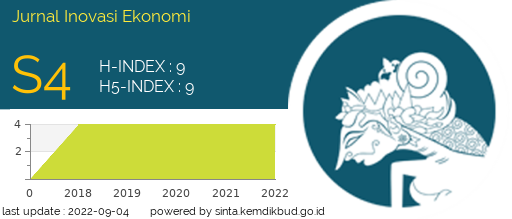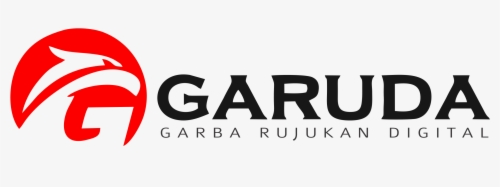How do Small and Medium Enterprise (SME) survive the COVID-19 outbreak?
DOI:
https://doi.org/10.22219/jiko.v5i02.11838Keywords:
business model canvas, business resilience, COVID-19, SMEAbstract
The purpose of this study is to describe a business model that can be applied to the SME during the COVID-19 pandemic with Business Model Canvas approach so that SME can survive (Business Resilience). This research uses a qualitative method, with literature studies taken from several sources both printed and electronic media, books, and research results accessed from various electronic journals. The data analysis used is content meta-analysis through an interactive procedure consisting of four stages: data collection, data condensation, data presentation, and drawing conclusions. The business model that can be applied to SME is the Business Model Canvas. Three important elements of business resilience are product excellence, people behavior, and process reliability, Business resilience is supported by digital transformation. Digital transformation exists when new digital skills emerge and digital tools are adopted. The right digitalization strategy is needed in achieving business goals and developing SME products or services to be more competitive. Competitive advantage is related to cultural diversity, plurality and social motivation. In the process of digital transformation, the correct digital infrastructure testing is required. By using the appropriate technology for system resilience, a business can carry out its digital transformation and create digital resilience.
Downloads
References
Ahmad, S., & Schroeder, R. G. (2003). The impact of human resource management practices on operational performance: Recognizing country and industry differences. Journal of Operations Management, 21(1), 19-43. https://doi.org/10.1016/S0272-6963(02)00056-6
Albulescu, C. (2020). Coronavirus and financial volatility: 40 days of fasting and fear. Published Mar 9. arXiv preprint arXiv: 2003.04005.
Arbussa, A., Bikfalvi, A. and Marquès, P. (2017), “Strategic agility-driven business model renewal: the case of an SME”, Management Decision, Vol. 55 No. 2, pp. 271-293.
Casalino, N., Dátri, A., Braccini, A.M. (2012), A quality management training system concerning ISO standards for sustainable organisational change in SMEs, in International Journal of Productivity and Quality Management (IJPQM)
Casalino, N., Cavallari, M., De Marco, M., Gatti, M., Taranto, G. (2014), Defining a Model for Effective e-Government Services and an Inter-organizational Cooperation in Public Sector, Proceedings of 16th International Conference on Enterprise Information Systems - ICEIS 2014, INSTICC, Lisbon, Portugal, vol. 2, pp. 400-408.
Casalino, N., De Marco, M., Rossignoli, C. (2015), Extensiveness of Manufacturing and Organizational Processes: An Empirical Study on Workers Employed in the European SMEs, Smart Innovation, Systems and Technologies, 2nd International KES Conference on Smart Education and Smart e-Learning, SEEL 2015, vol. 41, pp. 469-479, Italy.
Casalino, N and Żuchowski, I and Labrinos, N and Munoz N, Ángel L and Martín-J, José A. (2020). Digital Strategies and Organizational Performances of SMEs in the Age of Coronavirus: Balancing Digital Transformation with An Effective Business Resilience. Law and Economics Yearly Review Journal - LEYR, Queen Mary University, London, UK, Vol. 8, part 2, pp. 347-380, 2020; ISSN 2050-9014.
Cavallari, M., De Marco, M., Rossignoli, C, Casalino, N. (2015). Risk, Human Behavior, and Theories in Organizational Studies. Proceedings of Wuhan International Conference on E-Business. WHICEB 2015. Wuhan, China, AIS, Association for Information Systems, AIS Electronic Library (AISeL), pp.283-297.
Chesbrough, H. (2010), “Business model innovation: opportunities and barriers”, Long Range Planning, Vol. 43 No. 2, pp. 354-363.
Cortimiglia, M.N., Ghezzi, A. and Frank, A.G. (2016), “Business model innovation and strategy making nexus: evidence from a cross-industry mixed-methods study”, R&D Management, Vol. 46 No. 3, pp. 414-432.
Demil, B. and Lecocq, X. (2010), “Business model evolution: in search of dynamic consistency”, Long Range Planning, Vol. 43 No. 2, pp. 227-246.
Fernandes, Nuno. (2020). Economic Effects of Coronavirus Outbreak (COVID-19) on the World Economy. Available at SSRN: https://ssrn.com/abstract=3557504 or http://dx.doi.org/10.2139/ssrn.3557504
Foss, N.J. and Saebi, T. (2017), “Fifteen years of research on business model innovation: how far have we come, and where should we go?”, Journal of Management, Vol. 43 No. 1, pp. 200-227.
Frusciante, A.D., Elshendy, M., Casalino, N. (2014), How Motivation Brings to Healthy Organizations: Methods and Incentives to Increase Satisfaction, Efficiency and Productivity, Open Review of Management, Banking and Finance, Regent’s University, London, UK, pp. 134-141.
Jenny, Frederic, Economic Resilience, Globalization and Market Governance: Facing the COVID-19 Test (March 28, 2020). Available at SSRN: https://ssrn.com/abstract=3563076 or http://dx.doi.org/10.2139/ssrn.3563076
Laudien, S.M. and Daxböck, B. (2017), “Business model innovation processes of average market players: a qualitative-empirical analysis”, R&D Management, Vol. 47 No. 3, pp. 420-430.
Lindgren, P. (2012). “Business model innovation leadership: how do SME’s strategically lead business model innovation?”, International Journal of Business and Management, Vol. 7 No. 14, pp. 53-66.
Metallo, C., Agrifoglio, R., Ferrara, M., Casalino, N., De Marco, M. (2012), Why should people use wiki in academic environments? An empirical analysis of undergraduate students, Proceedings of the IASTED International Conference on Computers and Advanced Technology in Education, CATE 2012, pp. 431-437.
Osterwalder, A. (2004). The business model ontology. A proposition in a design science approach. Doctorate thesis l’Ecole des Hautes Etudes Commerciales de l’Université de Lausanne. http://www.hec.unil.ch/aosterwa/PhD/Osterwalder_PhD_BM_Ontology.pdf
Osterwalder, A., Pigneur, Y. (2010). Business model generation: a handbook for visionaries, game changers, and challengers. New Jersey: John Wiley & Sons, Inc.
Selkowski, Lukasz. (2020). Covid-19 Pandemic, Recession, Virtual Revolution Leading to De-globalization?. Journal of Intercultural Management; Vol.12 No.1 pp 1-11.
Teece, D.J. (2010). Business models, business strategy and innovation. Volume 43 page 172- 194: Elsevier. Long Range Planning
Downloads
Published
Issue
Section
License
Copyright (c) 2020 Jurnal Inovasi Ekonomi

This work is licensed under a Creative Commons Attribution-ShareAlike 4.0 International License.









